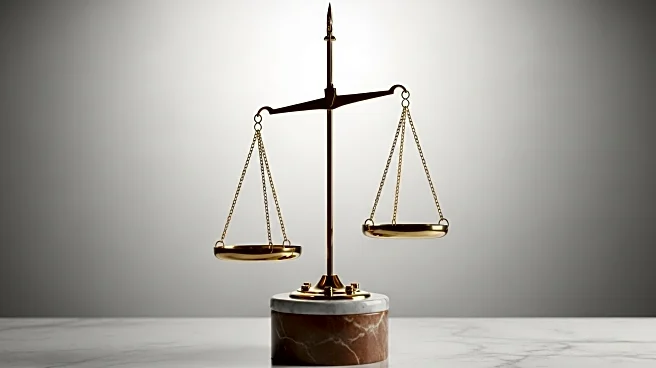What is the story about?
What's Happening?
President Trump has attempted to fire Lisa Cook, a member of the Federal Reserve's Board of Governors, marking the first time in the Fed's history that a president has tried to remove a governor. This move has raised concerns among economists and legal experts about the potential threat to the central bank's independence. Trump has been vocal about his desire to exert more control over the Fed, demanding significant cuts to the short-term interest rate. Economists warn that such actions could lead to higher inflation and increased borrowing costs for mortgages, car loans, and business loans. The Fed's independence is crucial for maintaining stable economic conditions, and Trump's actions have sparked fears of long-term inflation similar to past instances where political pressure led to economic instability.
Why It's Important?
The independence of the Federal Reserve is vital for the U.S. economy as it allows the institution to make decisions based on economic expertise rather than political pressures. If the Fed falls under presidential control, it could lead to higher inflation rates, affecting everyday Americans through increased costs for loans and mortgages. Historically, independent central banks have been associated with lower inflation rates, and the current situation could undermine this stability. Trump's push for lower interest rates may provide short-term economic boosts but could result in long-term economic challenges, including higher inflation and potential job losses. The situation highlights the delicate balance between political influence and economic expertise in managing the nation's monetary policy.
What's Next?
The legal battle over Lisa Cook's firing is ongoing, with a court decision expected soon on whether to temporarily block her removal. This case could set a precedent for future interactions between the presidency and the Federal Reserve. Additionally, the Fed's interest rate decisions, influenced by its board composition, could become more contentious if Trump succeeds in appointing more loyal members. The reappointment of regional Fed bank presidents in February could further escalate tensions, potentially leading to significant changes in the Fed's structure. Economists and policymakers will be closely monitoring these developments, as they could have profound implications for the U.S. economy and the Fed's ability to operate independently.
Beyond the Headlines
The broader implications of President Trump's actions extend beyond immediate economic concerns. The attempt to control the Federal Reserve raises questions about the balance of power between the executive branch and independent agencies. It also highlights the ongoing debate about democratic accountability versus the need for expertise-driven decision-making in economic policy. The situation could lead to discussions about potential reforms to ensure the Fed's independence while maintaining accountability. Additionally, the legal and ethical dimensions of the case, including allegations against Lisa Cook, could influence public perception of the administration's motives and the integrity of the Fed's governance.















